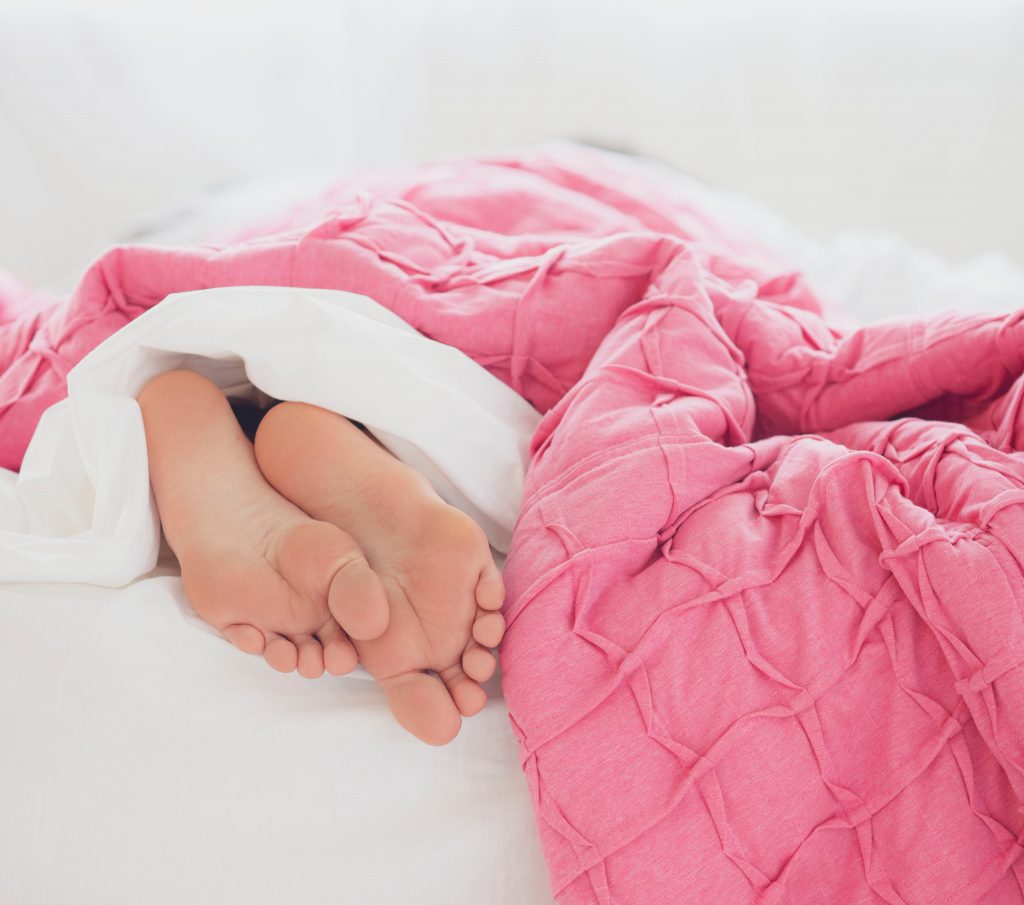
Research now supports what we’ve always known and felt — that bad quality or even an outright lack of sleep negatively impacts our health. Clinical studies report that poor sleep may contribute to a host of health problems including depression, anxiety, diabetes, and obesity.
This is especially frightening for those of you who regularly sacrifice sleep to juggle your many responsibilities. But now that we know that sleep plays a crucial role in the normal functioning of the mind and body, the question is what can a busy person do to encourage better sleep?
The simple answer is to develop a sleep routine. There are many factors in life that interfere with your sleep that you have no control over. But there are simple habits that you can adopt to encourage better sleep.
Here are some of these easy practices from experts that will help you get started on a routine for better sleep. Developing these habits and a routine will not only help you get a good night’s sleep but will also help you feel more energized and rejuvenated in the morning. Here’s the secret to feel ready to take on the world.
Turn your bedroom into a cool, restful environment.
One of the things that you do have control over is the place where you sleep — your bedroom! Create a sleep-inducing bedroom. Experts agree that a cool environment is the most ideal for sound sleep.
Maintain your room temperature comfortably cool. 60° to 75° F (15° to 24° C) is the ideal temperature for the onset of sleep. To achieve this, keep your room well ventilated. Taking a hot bath is another natural way to help the body feel cooler. The Harvard Medical School Healthy Sleep program explains that when you take a bath “the rise, then fall in body temperature promotes drowsiness.”
The Harvard Healthy Sleep program also adds that it is helpful “to make sure your bedroom is equipped with a comfortable mattress and pillows.” You may consider investing in temperature-controlled bedding.
Be mindful of lights and sounds around you.
In addition to being cool, a sleep-inducing environment should also be dark and quiet. Your tech devices emit blue light that affects your sleep. “Avoid prolonged use of light-emitting screens just before bedtime,” suggests the Mayo Clinic. Use room-darkening shades, heavy curtains, or an eye mask. Blocking the light will promote a sound slumber.
You also need to lower the volume of outside noise to achieve a quiet environment. Consider using earplugs, a fan, or other “white noise” devices that suit your needs. There are now countless “white noise” apps that can mask the noises that wake you up.
Try out essential oils therapy.
The use of essential oils to improve health, also known as aromatherapy, has long been known to have beneficial effects on sleep. As part of your sleep routine, break out your essential oil collection and experiment with aromatherapy.
You now have a wide range of products available such as diffusers, inhalers, bathing salts, body oils, creams, and lotions. You have options available to you for your different needs and your preferred style.
In addition to the wide range of products, you also have hundreds of essential oils to choose from. But don’t let this overwhelm you. You can start with the more popular oils. Lavender is known to relax the mind, improve your breathing, and influence your feelings about your surroundings. This is helpful in transforming your bedroom into a restful environment.
Whichever product and essential oil you choose, aromatherapy is an inexpensive and uncomplicated way to improve sleep quality.
Pay attention to food and fluid intake.
What you eat and drink throughout the day can affect the quality of your sleep. The key here — for both food and fluid intake — is balance. Avoid going to bed feeling too hungry or too full. Eat lighter meals during the evening. Stay away from food that can cause indigestion.
Similarly, the Harvard Healthy Sleep program recommends that you drink “enough fluid at night to keep from waking up thirsty—but not so much and so close to bedtime that you will be awakened by the need for a trip to the bathroom.”
Paying attention to food and fluid intake also means avoiding stimulants, especially in the later hours of the day. The Mayo Clinic reports that “Nicotine, caffeine and alcohol deserve caution, too. The stimulating effects of nicotine and caffeine take hours to wear off and can wreak havoc on quality sleep.” This means avoiding substances like coffee, tea, alcohol, and tobacco products for a few hours before bedtime.
Make use of mindfulness and guided meditation apps.
The key to a good sleep routine is establishing a “wind down schedule before going to bed,” explained Dr. Susheel Patil, a sleep expert of the Johns Hopkins Sleep Center. Doing relaxing activities before bedtime promotes better sleep because it helps you transition from wake time to sleep time. These calming activities include meditation, mindfulness exercises, and yoga.
Fortunately, technology is now a powerful tool that can help us with these relaxing activities. There are now dozens of options readily accessible and free for everyone. These include sleep improvement, bedtime yoga, and guided meditations apps. Using these apps and online options will surely help prepare your mind and body for good sleep.


